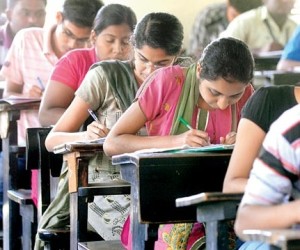Last Updated on July 30, 2020 8:51 pm by INDIAN AWAAZ

Our Correspondent / NEW DELHI
The Union Cabinet today approved new National Education Policy 2020. A single regulator for higher education institutions, multiple entry and exit options in degree courses, discontinuation of MPhil programmes, low stakes board exams, common entrance exams for universities are among the highlights of the new National Education Policy.
Briefing media here today, Information and Broadcasting Minister Prakash Javadekar said, the Cabinet chaired by Prime Minister Narendra Modi has given approval to a new education policy for the 21st century.
He said, it is important, as for 34 years there were no changes in the education policy.
Education Minister Ramesh Pokhriyal Nishank said, New Education Policy 2020 will prove to be a milestone in the making of New India.
Mr Nishank said, the Cabinet also approved changing the name of the Human Resources Development Ministry to Education Ministry.

Secretary Higher Education Amit Khare said, NEP 2020 aims to increase the Gross Enrolment Ratio in higher education including vocational education from 26.3 per cent in 2018 to 50 per cent by 2035.
He said, at least 3.5 crore new seats will be added to higher education institutions.
Mr Khare said, the policy envisages broad based, multi-disciplinary, holistic Under Graduate education with flexible curricula, creative combinations of subjects, integration of vocational education and multiple entry and exit points with appropriate certification.
He said, Under Graduate education can be of 3 or 4 years with multiple exit options and appropriate certification within this period.
The Higher Education Secretary said, affiliation of colleges is to be phased out in 15 years and a stage-wise mechanism is to be established for granting graded autonomy to colleges.
Over a period of time, it is envisaged that every college would develop into either an autonomous degree-granting college, or a constituent college of a university.
Among the key reforms in the policy are a single regulator for all higher education institutions except for legal and medical colleges, common entrance exam for admissions to universities and colleges to be conducted by the National Testing Agency and common norms to be in place for private and public higher education institutions.
Secretary, School Education and Literacy, Anita Karwal said, Board exams will be low stake and the focus will be on testing concepts and knowledge application.
She said, Home language, mother tongue or regional language to be medium of instruction up to class 5. Ms Karwal said, school curriculum will be reduced to core concepts and there will be integration of vocational education from class 6.
In May 2016, a ‘Committee for Evolution of the New Education Policy’ under the chairmanship of TSR Subramanian, former cabinet secretary, submitted its report.
Based on this, the Ministry prepared a document called ‘Some Inputs for the Draft National Education Policy, 2016′.
Then, a panel led by former Indian Space Research Organisation (ISRO) chief K Kasturirangan had submitted the draft of the new NEP to Union Human Resource Development Minister Ramesh Pokhriyal ‘Nishank’ when he took charge last year.
The draft was then put in the public domain to seek feedback from various stakeholders and over two lakh suggestions were received by the HRD Ministry about the same.
Highlights of the New Policy
NEP 2020 will bring 2 crore out of school children back into the main stream
New 5+3+3+4 school curriculum with 12 years of schooling and 3 years of Anganwadi/ Pre-schooling
Emphasis on Foundational Literacy and Numeracy, no rigid separation between academic streams, extracurricular, vocational streams in schools ; Vocational Education to start from Class 6 with Internships
Teaching upto at least Grade 5 to be in mother tongue/ regional language
Assessment reforms with 360 degree Holistic Progress Card, tracking Student Progress for achieving Learning Outcomes
GER in higher education to be raised to 50 % by 2035 ; 3.5 crore seats to be added in higher education
Higher Education curriculum to have Flexibility of Subjects
Multiple Entry / Exit to be allowed with appropriate certification
Academic Bank of Credits to be established to facilitate Transfer of Credits
National Research Foundation to be established to foster a strong research culture
Light but Tight Regulation of Higher Education, single regulator with four separate verticals for different functions
Affiliation System to be phased out in 15 years with graded autonomy to colleges
NEP 2020 advocates increased use of technology with equity; National Educational Technology Forum to be created
NEP 2020 emphasizes setting up of Gender Inclusion Fund, Special Education Zones for disadvantaged regions and groups
New Policy promotes Multilingualism in both schools and HEs; National Institute for Pali, Persian and Prakrit , Indian Institute of Translation and Interpretation to be set up
